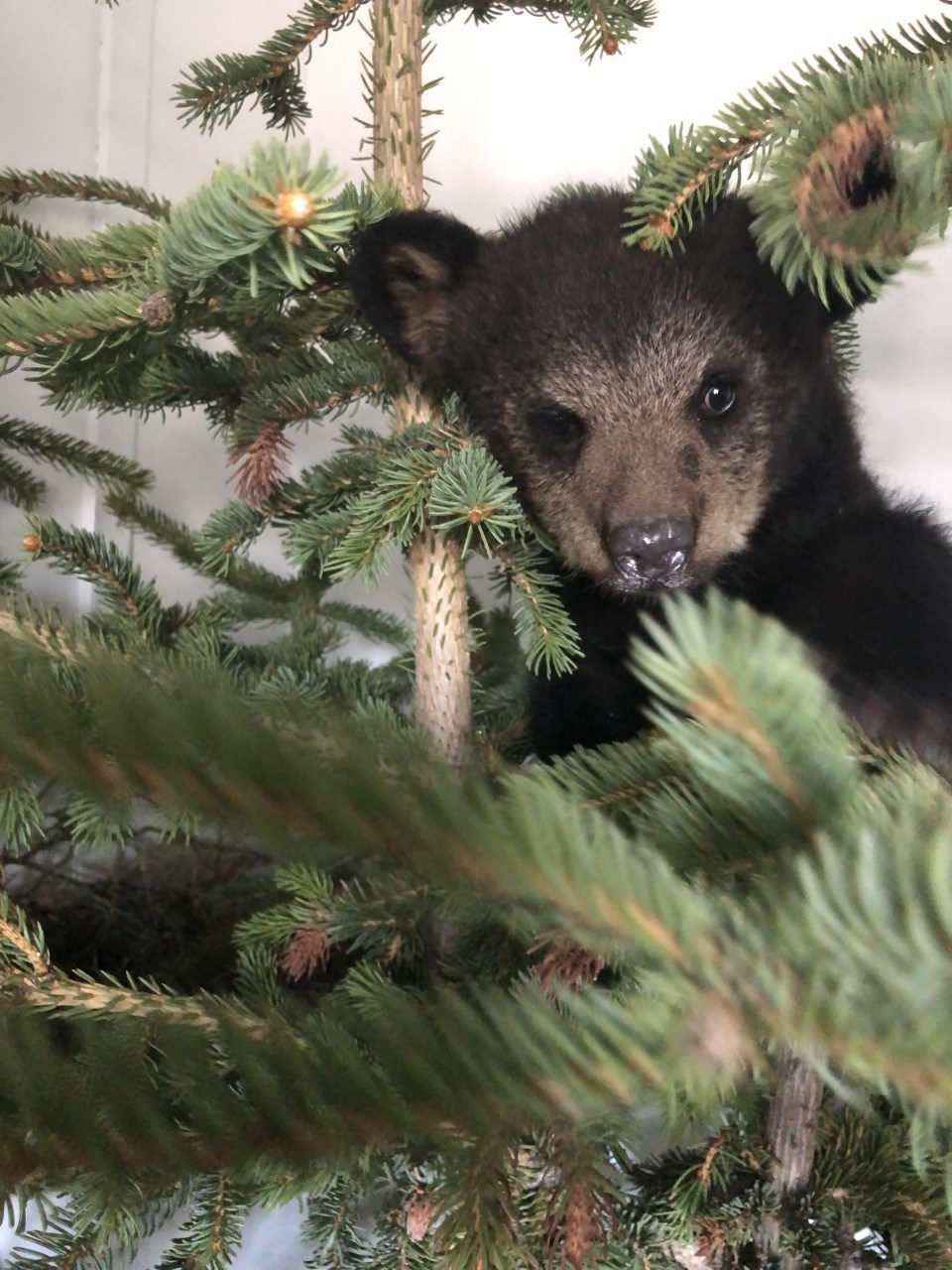After months of legal wrangling, disagreements, letters, emails and phone calls with Alberta’s wildlife department officials, the Cochrane Ecological Institute (CEI) gained a bit of closure on Dec. 16 as the Crown withdrew the charges levelled against the Rocky View County-based organization in exchange for owner Clio Smeeton’s guilty plea to the identical charges issued in her name.
She paid a $120 fine, but is still being penalized as she awaits the re-issuing of CEI’s permit to rehabilitate black bear cubs.
Alberta Environment and Parks, now called Environment and Protected Places (EPP), had launched legal proceedings against CEI and Smeeton centring around alleged breaches of their regulations involving the rescue of a black bear cub named Koda.
Smeeton and the province have been embroiled in a debate over what’s best for orphaned cubs since the province revoked the non-profit’s permit.
After initially revoking the permit, the department subsequently admitted they shouldn’t have, and reinstated it two months later, before revoking it again seven months after that.
It all began in 2021, when a five-kilogram bitumen-covered black bear cub was delivered to the Cochrane-based rehabilitation centre from a fly-in oil camp in northern Alberta.
Koda arrived at CEI on May 18 and was taken to a wildlife veterinarian in Airdrie where she was cleaned up, checked out, and began feeding and acting like a normal cub.
On June 1, Alberta Fish and Wildlife officers took the cub away, along with the facility’s permit to rehabilitate bears, much to the surprise and chagrin of Smeeton.
An Aug. 15 letter from the province admitted they erred in their earlier decision and that the permit was therefore reinstated.
But confusion re-emerged and escalated in the spring of 2022 when, as required, the institute applied for the annual renewal of their permit. A March 31, 2022 letter from the department was again revoking the permit – a reversal of the reversal.
Although nothing new had happened in the interim, they were changing their minds again, revoking their permission for 2022-23.
The letter stated the decision was based on ongoing the outstanding legal considerations.
Those legal considerations are now non-existent, as a result of the case against CEI being dropped.
So there should be no problem with re-instating the CEI permit for 2023-24.
Not so fast, said Shaun Fluker, a lawyer with the Public Interest Law Clinic at the University of Calgary, who represented CEI pro bono in the case.
It seems the heavy lifting on the re-issuing of the permit to rehabilitate black bear cubs is still ahead.
“The real battle with this issue is the next step in the process – seeing if Alberta Environment will restore the CEI’s ability to rehabilitate orphaned black bear cubs,” Fluker said.
CEI will still have to file a number of documents to the province’s satisfaction.
Fluker said “there’s really no law here” in describing how wildlife rehabilitation facilities are required to submit documentation every year in order to be granted permission to take in injured or orphaned wildlife.
“Every year, all of these institutes are left hanging at the whim of these (provincial) officials, as to whether they’re going to have the permit they need to continue to operate,” he said.
Fluker said the resolution of the legal aspect of the dispute between CEI and the province does create some space for him to pursue some much-needed reform.
“This will help the Public Interest Law Clinic to help dig through some of this bureaucratic mess, and see what can be done, because it seems like a real backwards process,” he said.
One of the tickets issued to CEI and Smeeton stated they broke the rule against allowing members of the public to transport wildlife. The cub was flown out of a fly-in camp to a location about halfway to the facility.
“If you take a look on some of the websites of the other facilities, they all more or less condone that – they encourage people to bring these animals to their facilities,” Fluker said.
“There’s really no other way to do it.”
Fluker said he will continue to act on behalf of the institute as they work to have their permit re-instated.
Smeeton said she's looking forward to moving on.
"This organization is internationally recognized as having successfully rescued, reared and returned injured or orphaned wildlife to the wild for over 50 years at no cost to government. By doing so (the CEI) has provided a service to the wild animals of Alberta and Albertans who care about wildlife and the environment," she said.
"As all charges have been dropped, the CEI looks forward to a better relationship in the future."
The law clinic received documents in 2018 under a freedom of information request they had submitted to Alberta Environment prior to the revocation of CEI's permit.
The clinic’s summary of the freedom of information record is critical of how heavily redacted it was, and concluded, “The policy for wildlife rehabilitation in Alberta appears to be based more on inertia than a scientific consideration of the effectiveness of rehabilitation.”
Fluker hopes that between now and spring some of the unnecessarily convoluted provincial processes around re-issuing permits every year, not just for CEI, but for all rehabilitation centres in the province, will be reconsidered.
Wildlife rehabilitation policy in Alberta “leaves much to be desired,” according to Fluker. He cited an incident in Bragg Creek last August as an example of how concerned the public can be when bear cubs are orphaned.
A black bear that had been roaming the area with her cubs for a few weeks was euthanized by Alberta Fish and Wildlife officers, orphaning three cubs and causing debate in the hamlet about the proper way to handle bear-human interactions.
After their mother was euthanized, the three cubs were then stranded up a tree for a few hours, causing some concern among local residents.



